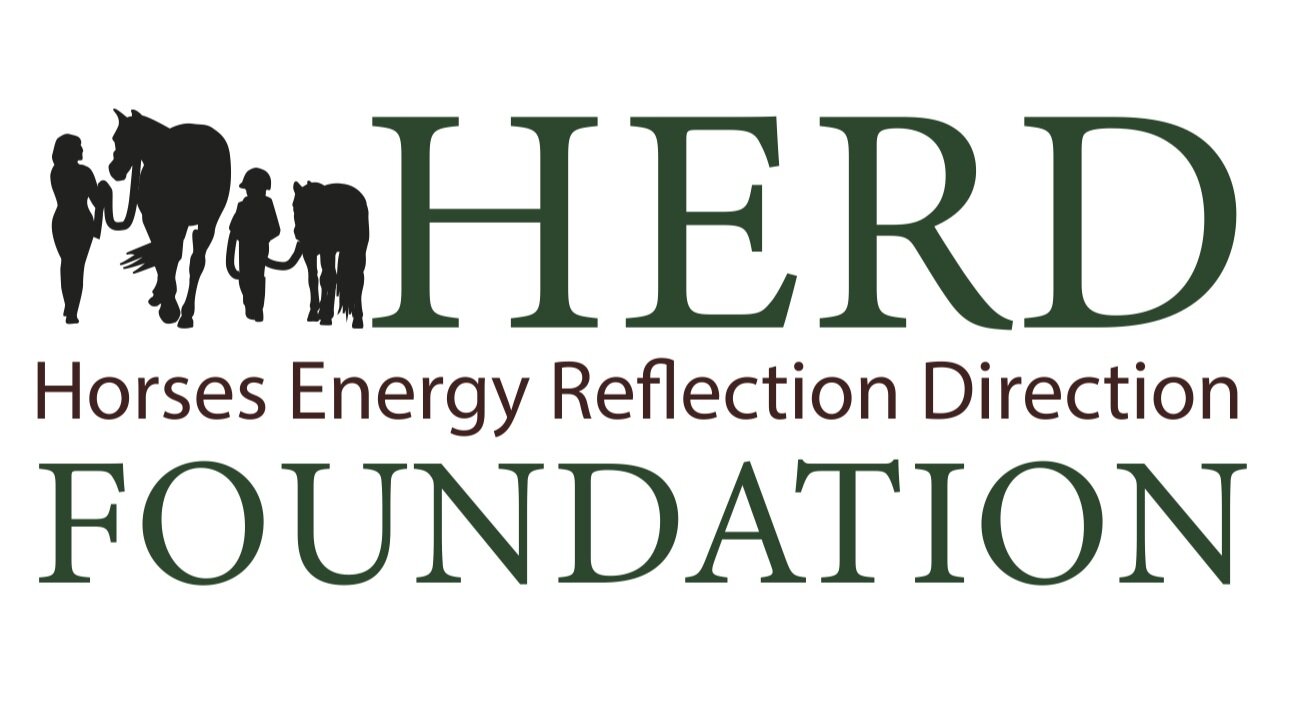
What is Equine Assisted Learning?
Equine-Assisted Learning (EAL):
….is an experiential learning approach designed to help participants identify, face, and work through life issues. EAL is similar to Equine Assisted Psychotherapy (EAP), but instead of conducting psychotherapy, the focus is more toward education and skill enhancement. EAL programs often focus on social skills and leadership development. It is very useful when working with groups from schools or the corporate world.
EAL utilizes a different approach than traditional therapeutic horsemanship programs in that the clients do not ride. The horses play a completely different role in the learning process. The goal of EAL is for clients to interact with horses from the ground, observe the horses’ reactions to them and then identify ways these reactions could be metaphors representing something going on in the client’s life.
Horses are very intuitive creatures
…and possess an acute sense of awareness of everything that is going on in their environment. They are extremely sensitive to the actions of humans and have the uncanny ability to pick up on our non-verbal behavior.
Horses are completely honest in the way they react to situations. They cannot lie or gauge their reactions to spare anyone’s feelings. Therefore, horses are a fantastic instrument to use when getting a “read” on what is going on with a human. Horses are particularly useful with clients who are unable or unwilling to communicate their thoughts and/or feelings verbally.
Benefits of Equine-Assisted Learning
Trust: The first step in Equine Assisted Learning is to trust the horse, the therapist, and yourself. This is a profound step towards growth in interpersonal relationships and healing. Learning to trust an animal such as a horse is very powerful in the development and restoration of trust for those whose ability to trust has been violated by difficult life experiences.
Stress Reduction: Research on human-animal interaction indicates that contact with animals and horses significantly reduces physiological stress levels.
Decreasing Isolation: Depression is frequently associated with feeling rejected by peers, feeling different from peers, and feeling left out. The horse’s unconditional acceptance non-verbally encourages clients back into the camaraderie of life to engage in positive social interactions that decrease isolation.
Mindfulness: Equine Assisted Learning integrates mindfulness at almost every step as the client learns to be present, in the moment, calm, centered, focused, and fully engaged. Horses are very sensitive and pick up on others' emotions quickly, and accurately reflect these feelings in mirroring ways to the client. With mindfulness, the client is able to learn new, positive ways of being, which has a significant impact on thoughts, feelings, and behaviors associated with mental health and wellness.
Self-Esteem: Clients’ confidence is enhanced as they challenge themselves to learn and master new skills. They improve their ability to tackle new projects and challenges in a natural, non-competitive, and non-judgmental environment, which leads to improved confidence, self-assurance, and self-esteem.
Impulse Regulation: Children and teens who struggle with impulse control and emotional regulation can benefit tremendously from Equine-Assisted Therapy. The need to communicate with a horse calmly and non-reactively promotes the skills of emotional awareness, emotion regulation, self-control, and impulse modulation.
Self-Efficacy: Experiencing success with challenging exercises and goal-focused activities in non-verbal ways fosters initiative, problem-solving, and renewed internal feelings of self-efficacy. Experiences of “I did it!” replace feelings of helplessness and lack of motivation, empowering the client to take on challenges in many areas of coping and healing.
Positive Identity: As the horse and facilitator work in close alliance with the participant, a gradual sense of acceptance and feeling 'liked' emerges to enhance the participant's positive self-concept and identity. The participant bonds with the horse to create a positive and healthy relationship that fosters the person's identity and self-definition.
Communication: Learning to communicate and achieve harmony with a large animal promotes intuition, stepping outside of one's comfort zone, and patience. Horses’ sensitivity to non-verbal communication assists participants to develop greater awareness of their emotions, the non-verbal cues that they may be communicating, and the critical role of non-verbal communication in relationships.
Growth With Nature: Through Equine Assisted Learning, participants have a unique opportunity to encounter the outdoors from a new perspective. Feelings of joy and connection are often discovered or revived as participants experience nature’s beauty in a renewed way. Engaging in therapy in a more natural, peaceful, outdoor environment greatly enhances the benefits of therapy.
Self-Acceptance: Many participants are initially concerned that they will do something embarrassing while learning about and interacting with the horses. Fears of embarrassment in public are thereby often reduced, and self-acceptance increased. Participants also learn that progress is a journey, and self-acceptance for every phase of that journey is critical to resilience.
Social Skills: Equine Assisted Learning supports participants in learning appropriate non-verbal and verbal communication, receiving and understanding positive and negative feedback, reciprocity in relationships, assertiveness, initiative, and engagement. It is very powerful in moving people who are socially isolated or
withdrawn to a more open, positive, and appropriate social platform. A positive relationship with a horse is often the first, safe step toward practicing the social skills needed to initiate closer relationships with people, learn trust, and engage in social reciprocity.


